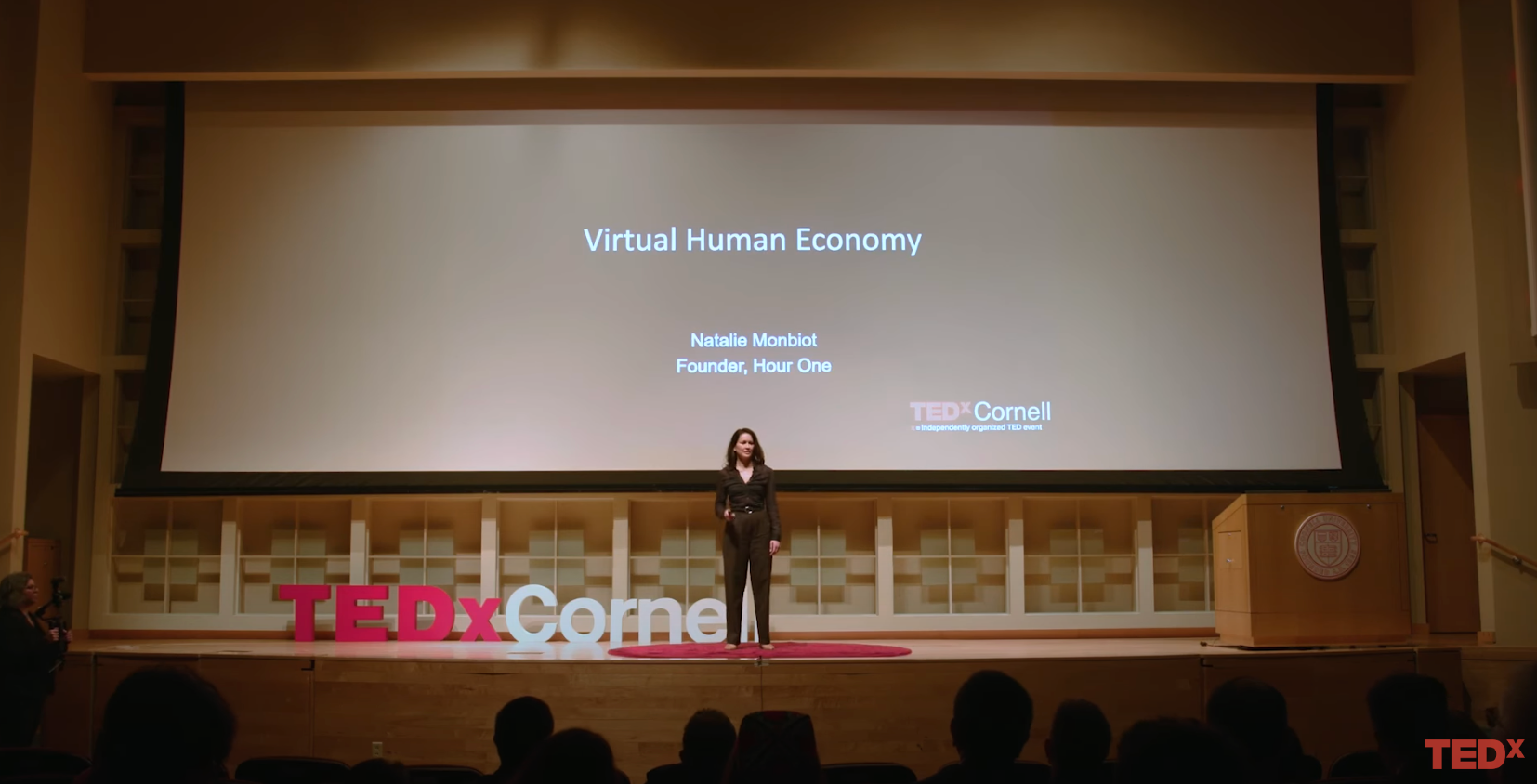If video marketing is the future for all businesses, then the future has arrived.
Looking back at the last decade, video has transformed and taken one of the most dominant and critical roles in any business marketing strategy.
The proof is in the statistic pudding, with over 91% of consumers saying that they prefer video content over any other form and want to see more online video material from brands.
That said, If you’re asking whether investing in video marketing is worth the time and budget, the answer is: YES.
If you’re still shaping your 2024 marketing strategy, you’ve come to the right place. While video content creation does involve some investment, it doesn’t need to consume your entire marketing budget, and we’ll show you how.
In this article, we will take a look at some key statistics that will help you better understand why video marketing needs to be a key tool for your marketing strategy in 2024. We will also go over the challenges businesses face with traditional video creation and how AI-generated video can overcome them. We will finish it off with some valuable predictions and insights on where the world is going with video marketing, including how AI is transforming marketing strategies as we know them.
With the help of this article, by the end, you should have a pretty clear idea of the direction in which you should focus your marketing energy in 2024. From the rise in mobile video viewing to the influence of social media, webinars, and explainer video content on consumers, discover how to harness these trends to guarantee your brand’s success. So let’s get started.
The Current State of Video Marketing
Facts are Facts: Video content tops the list as the most shared medium, surpassing social media updates, blog entries, and product pages in popularity.
Yes, businesses are using video marketing to win consumers over, and here are 5 reasons why.
1. Video offers consumers a better understanding of a business’s product
According to Wyzowl’s Video Marketing Statistics 2023 report, a staggering 96% of video marketers acknowledge that video marketing has enhanced user understanding of their product or service.
If your business is involved with complex or seemingly dull topics, taking advantage of video can be a beneficial strategy to simplify and present the information in an engaging, entertaining manner.
In addition, educational videos that illustrate the functionality of your product or service can help customers maximize their use, thereby encouraging confidence, trust, and brand loyalty.
2. Internet users simply enjoy watching video more
In 2020, the number of people reported watching digital videos reached 244.4 million. A number much higher than any expert could have expected.
Now, although this probably has a lot to do with COVID-19 and the fact that people didn’t leave their houses, marketing stats haven’t changed too much since, with people consuming an average of 17 hours of online video per week in 2023.
If we take it from a more corporate perspective, 91% of people say they want to see more online videos from brands.
Video is also the most ’shareable’ content, with 51% of people saying they are more likely to share video with their friends than any other type of content.
These statistics highlight that although customers use video content in all aspects of their online lives, it also leads online interactions, emphasizing the need for video to be an integral part of a business’s online presence.
3. Video influences consumer purchasing decisions
Not only are we learning that people are more engaged by video content, but they also have a significant role in influencing consumers’ decision-making.
Simply put: video = profit.
79% of individuals report being persuaded to purchase software or an app after watching a video, while 89% state that viewing a video has influenced them to buy a product or service.
Video marketing trends show that from explainer videos to brand videos, videos inviting consumers to learn about services and products are key to their purchase decisions.
If Internet king Google is revealing research that shows 55% of consumers use online videos for their shopping research, you know that you’re making the right decision by adding to your marketing strategy in 2024.
4. Videos are content leaders on social media
Users and consumers are seeing an increase in videos across all platforms. Whether it’s on Instagram, TikTok, or LinkedIn – videos are everywhere.
Unsurprisingly, the most popular platforms for video marketing are led by YouTube, with 90% of video marketers relying on the world’s top video site. Following closely are Facebook at 86% and then Instagram and LinkedIn, both at 79%, adding significant value to their video marketing strategies.
Regarding the most effective platforms for video marketing, YouTube stands out, with 78% of video marketers rating it as effective, followed closely by LinkedIn at 69%.
However, not all video content is equally as effective. 66% of consumers consider short-form videos the most captivating content on social media platforms.
Short-form definition varies from platform to platform. While Instagram feed videos should run for 26 seconds. Facebook videos that run for two to five minutes increase audience engagement. Get to know the platform you are posting on and its specific recommendations, including the use of captions, dimensions and other valuable optimizations.
So why should videos be incorporated by businesses for social media marketing?
- They expand your reach and visibility by engaging with new audiences on platforms that embrace social media videos, like LinkedIn, YouTube, Instagram, and Facebook.
- They enhance your credibility and trustworthiness by showcasing your expertise.
- Improving your sales cycle and revenue by attracting more traffic and leads to your website or landing pages. This one takes us to number 5.
5. The critical role of video in increasing online traffic and lead generation
Whether it’s a customer testimonial video or a how-to video, this video marketing trend is unmistakable: Marketing videos are a vital tool for boosting brand visibility.
A compelling 91% of brands affirm that video marketing has significantly enhanced their web traffic, with 90% saying video marketing has helped them generate leads.
But it doesn’t end there.
An impressive 87% of businesses report that video marketing has not only escalated their sales but also significantly augmented the dwell time on their websites, underlining the profound impact of video content in enhancing both revenue generation and user engagement.
Video ads stand as a highly effective format in digital advertising for grabbing your audience’s attention and interest. They boast an average click-through rate (CTR) of 1.84%, the highest across all digital ad formats.
This means that for every 100 viewers of a video ad, nearly two are likely to click through to the advertiser’s website or landing page. This efficacy is superior to other ad types like banner ads, which only average a CTR of 0.12%.
Challenges in Traditional Marketing Video Creation
When looking at the challenges of traditional video production, we thought that it would be best to consider some fascinating statistics indicating why businesses refrain from producing marketing videos.
According to the 2023 Wyzowl report, The primary hurdle, as indicated by 30% of respondents, is the lack of time to create video content and the time-consuming nature of traditional marketing video productions.
Another not-so-suprising video marketing statistic, is that 18% find video productions daunting and don’t know where to begin in the video creation process – indicating a knowledge gap in this area.
Due to the high costs involved in traditional marketing videos, 10% face internal challenges, unable to persuade key decision-makers about the value of investing in video. Equally, another 10% perceive video production as too costly, a justified concern given the resources and expertise traditionally required.
These statistics collectively speak for themselves. But there’s more.
With difficulty localizing content and making it applicable and relevant on a global level, businesses need to invest additional time and resources on employing various distribution channels and making necessary adaptations to their marketing videos.
All of these obstacles highlight the need for careful planning, resource allocation, and skill development to leverage videos effectively. Such challenges underscore the necessity for more efficient approaches.
This is where AI comes into the picture.
AI tools offer numerous advantages, including reduced production times and costs, simplified content updates, and enhanced accessibility. These benefits directly address the pain points associated with traditional video marketing productions, paving the way for more streamlined and effective strategies.
AI in Video Marketing Production
We’ve already established that video marketing is a total game-changer in the realm of business strategy. Still, diving even deeper, the real star is AI-generated video creation. AI isn’t just about making cool videos; it’s about the significant impact that it has on return on investment (ROI).
An impressive 96% of marketers have reported the positive ROI of AI-powered video marketing, highlighting its effectiveness and efficiency. Furthermore, 75.7% of marketers now utilize AI tools in their workflows, signaling a significant shift in the industry’s approach to content creation.
These statistics reflect a broader trend in which AI is not just an optional tool but a fundamental component in the crafting compelling and efficient marketing videos. From applying professional templates and automating tedious tasks to adding life-like human avatars and producing personalized content, AI’s role in revolutionizing video marketing is profound.
Although we can go on for days about the benefits of AI and its positive impact on video marketing trends, when evaluating the production of marketing videos, it’s essential to understand the distinctions between traditional methods and those of AI.
Traditional vs. AI-Generated Marketing Video Production
Skill Requirement
Traditional: Demands significant human skills in scripting, filming, and editing.
AI-Generated: User-friendly, accessible even to novices in video production.
Process
Traditional: Resource-heavy, involving multiple manual stages from concept to completion.
AI-Generated: Streamlines processes, automating tasks like subtitle generation and script writing.
Creative Flexibility
Traditional: Offers creative control but is constrained by technical skill requirements and resource availability.
AI-Gnhanced: Leverages creativity with advanced features like virtual presenters and customizable templates.
Adaptability
Traditional: Limited in its ability to update content swiftly; often requires reshoots.
AI-Generated: Facilitates easy edits and content updates in response to market trends without the need for reshooting.
Accessibility
Traditional: Often confined to a single language, limiting its reach.
AI-Generated: Supports multilingual content, broadening audience engagement and accessibility.
Cost and Time Efficiency
Traditional: Generally time-intensive and costly, owing to manual labor and professional editing.
AI-Generated: Saves time and reduces costs, minimizing the reliance on extensive professional editing.
Consistency in Marketing Message
Traditional: Potential for variability in message delivery across different videos.
AI-Generated: Guarantees consistent messaging and branding across all marketing materials.
The Future of AI in Video Marketing
As we step into 2024 and peer in the crystal bowl of video marketing, AI is paving the way for some big changes in video marketing strategies. As AI technologies continue to evolve, their ability to enhance the creativity and effectiveness of marketing videos is likely to become even more pronounced, setting a new standard in the industry.
Here’s a glimpse at what’s on the horizon:
- Personalized Content Creation: AI will enable the creation of highly personalized videos, tailoring content to individual viewer preferences and behaviors. Personalized content holds significant potential in increasing engagement and conversion rates.
- Automated Video Editing: The use of AI in editing will streamline the video production process, making it faster and more cost-effective while maintaining high-quality standards.
- Predictive Analytics: AI will provide deeper insights into audience preferences, allowing marketers to anticipate trends and create content that resonates more effectively with their target audience.
- Enhanced Viewer Engagement: AI’s ability to analyze viewer responses will lead to more engaging and interactive video content, with features like customizable storylines and interactive elements.
- Voice and Facial Recognition: The integration of these technologies will offer new ways to interact with and personalize content for viewers, making the viewing experience more immersive.
These advancements in the marketing industry are profound.
We’re not just looking at a future where AI assists in the creative process; we’re heading towards an era where AI reshapes the way we think about video marketing, making it more intuitive, responsive, and effective than ever before.
Marketing videos with Hour One
From a growing trend to an essential part of any solid marketing strategy – AI is here to stay, and Hour One is leading this transformation.
By harnessing AI in video production, Hour One offers a breakthrough in creating marketing content that’s not only time-efficient but also highly personalized and engaging.
With over 100 lifelike AI avatars in various languages and accents, features such as text-to-video, and an extensive royalty-free media library, Hour One takes viewer engagement and message retention to new heights. This diversity ensures that marketing messages are memorable, globally accessible, and resonate with a broad audience spectrum.
Reflecting current video marketing trends and predictions, AI-generated videos by Hour One promise more dynamic and customized content, significantly enhancing the impact and reach of marketing campaigns across all platforms.
Experience firsthand the power of personalized, professionally crafted AI-generated videos and connect with audiences like never before. Start today with Hour One’s free trial, and witness the transformation in your marketing results.








